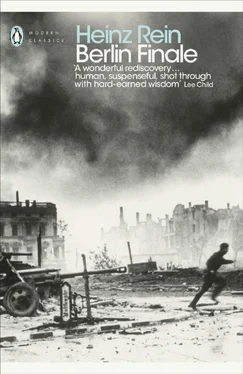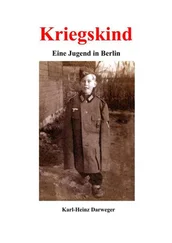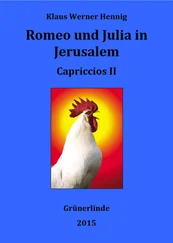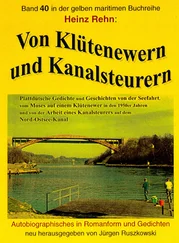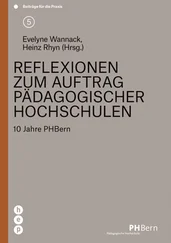Lassehn shrugs. ‘I don’t know, Doctor,’ he replies, ‘I really don’t know. I’m not exactly religious, but I wasn’t brought up as an atheist either. In my parents’ house faith was to some extent a good, reliable middle-class prop that could be taken out of mothballs when necessary, it was part of the family reputation, it was faith without obligation and basically without content.’
‘So you don’t believe in God,’ Dr Böttcher establishes matter-of-factly. ‘Philosophical systems apart from the Rosenberg myth might be unfamiliar to you, yes, for heaven’s sake, what then is the point of your life? Simply the fulfilment of material desires and nothing else?’
‘No, Doctor,’ Lassehn replies, ‘I have seen the point of my life as lying in music.’
‘The phrasing of your answer already shows that that is no longer the case, or at least that you have begun to have considerable doubts about the matter.’ Dr Böttcher pushes his glasses a little way up his forehead with two fingers. ‘Music,’ he continues quietly, ‘music is one of the most precious gifts of the human spirit, but it alone cannot be the content, the goal of life. Music alone is too little, it must be rooted in something. There is no thing in itself, my young friend.’
‘For as long as I was able to practise it, music left me entirely fulfilled,’ Lassehn disagrees. ‘There was no room for anything else in me, and it is to music that I attribute the fact that I could not be infected by National Socialism. You can’t convince me…’
‘You are still very young, Mr Lassehn,’ Dr Böttcher replies mildly, and rests his hand lightly on Lassehn’s arm, ‘and I do not want to use my age as argument in any way, but I am sure you will believe me when I claim to have more experience and greater insight into things. You say that your complete absorption in music left you able to resist the National Socialist infection. But I believe that you, entirely obsessed by music, would also have been able to resist any other influence. Did you in the past consider art as a thing in itself?’
Lassehn nods.
‘However, Doctor, art is a task in its own right, it has no particular purpose.’
‘Oho,’ Dr Böttcher says emphatically, ‘are artists not embedded in their environment, are they not shaped by their influences, are they not subject to universal laws? Yes or no?’
‘Perhaps,’ Lassehn admits reluctantly, ‘but in their art they rise above the everyday.’
Dr Böttcher smiles indulgently. ‘You think you are elevated above everyday life, Mr Lassehn, but you are every bit as much a part of it as everyone else. Art does not stand outside or above the laws of life, the artist’s independence is a mere illusion, even art is not apolitical and must ossify without the load-bearing support of an ideal or a faith in the aesthetic. You will never be able to play Bach to perfection without the gift of feeling your way into his naïvely trusting thought, never will you be able to grasp Beethoven’s sonatas in all their depth if you do not understand the revolutionary hothead, you will always remain a mere technician if your own attitude of mind and soul does not breathe life into his scores.’
Lassehn has lowered his head. ‘Where is the way out, Doctor,’ he asks quietly. ‘You have shown me the spiritual limbo of my situation, and for years I have had the oppressive feeling that life was trickling through my fingers like sand. But you have not yet told me how I can get out of this situation. You and Mr Wiegand and Mr Klose have your political and philosophical foundation. Won’t you let me share in that?’
‘It isn’t as easy as it was with the Nazis,’ Dr Böttcher says with a smile, ‘that you join the Party and get the philosophy free of charge with all its proscriptions, rules of behaviour, regulations of implementation et cetera delivered free to your door. Our philosophy, Mr Lassehn, needs to be worked upon, it cannot be learned, but I would be happy to engage with you, but above all I will entrust you to the protection of our friend Wiegand, who has more time than I do. I am a doctor and have a big cash practice, but Wiegand too lives underground.’ Lassehn jerks around. ‘You live underground?’ he asks hastily. ‘I’m going to have to do that too…’
Wiegand holds both hands up against the storm of questions that threatens to break over him. ‘Slowly, slowly, Mr Lassehn,’ he says solicitously. ‘You doubtless want me to give you advice on how to do this. Well, the answer is in fact quite simple. There is no diagram to follow, you have to act as the situation requires, be fundamentally suspicious, always keep your eyes open and mind your tongue. When did you run away from the… ah, you don’t want to hear that. Since when have you been on the road?’
Lassehn thinks for a moment. ‘Since the…’ – he throws his head back – ‘since the twenty-second of January.’
‘That’s almost three months,’ Wiegand says, ‘so you can’t say you’re completely inexperienced.’
‘Certainly,’ Lassehn agrees, ‘but during all that time I’ve been travelling, I roamed the country roads and above all the forests, I joined the columns of foreign workers and mingled among trails of refugees, but I don’t know how things are in Berlin, because I haven’t been here since September forty-three.’
‘We recommend extreme caution, Mr Lassehn,’ Wiegand says seriously, ‘checks have been stepped up over the last few days. Haven’t you read the latest proclamation, calling the population to be alert?’
Lassehn shakes his head.
‘I’ll leave you the 12-Uhr-Blatt , you can read about it,’ Wiegand continues. ‘We’ve been talking about you, you can stay alternately with Klose and with me.’
‘With you?’ Lassehn asks, perplexed. ‘But don’t you live outside the law yourself?’
Wiegand smiles through pursed lips, ‘Yes, but there are very different ways of living underground. You probably imagine that you’re either constantly crouching in some dark cellar or creeping through the streets with your head lowered. No, my dear chap, you can’t keep on doing that indefinitely, but quite apart from that it depends on why you are living underground. A wanted criminal is also living undergound in a sense, because he doesn’t want to go to jail, a Jew hidden from the Gestapo is also living underground to escape transportation to the east and thus certain death, a soldier who has, like you, abandoned his unit because irresistible longing calls him home or because he can no longer bear the bloody madness of war is also living underground because he can’t reverse the step he has taken without facing the rope.’
Wiegand pauses and looks quizzically at Dr Böttcher.
‘So in which way are you living outside the law?’ Lassehn asks.
Wiegand hesitates before answering.
‘In a legal way,’ Dr Böttcher laughs.
‘You can tell the boy everything,’ Klose says, ‘he’s genuine, I can tell, he’ll keep his mouth shut, he’s not going to rat on anyone.’
‘Legally outside the law?’ Lassehn says, amazed. ‘I don’t understand.’
‘I could extend the paradox,’ Dr Böttcher says. ‘He lives outside the law in an illegally legal way, but of course you can’t get your head around that. Wiegand is properly registered with the police, his papers are all in order, he even has an army documentation book that has passed through various checks, he even works for a major company, the Karlshorst locomotive depot. Everything in his life is in excellent order.’
‘So where’s the illegality?’ Lassehn asks.
‘Ah, you little lamb,’ Klose laughs broadly. ‘Friedrich Wiegand is only known as Friedrich Wiegand to us, for the world out there, for the police, for the military authorities and the other authorities his name is… what’s your name, Fritz?’
Читать дальше
